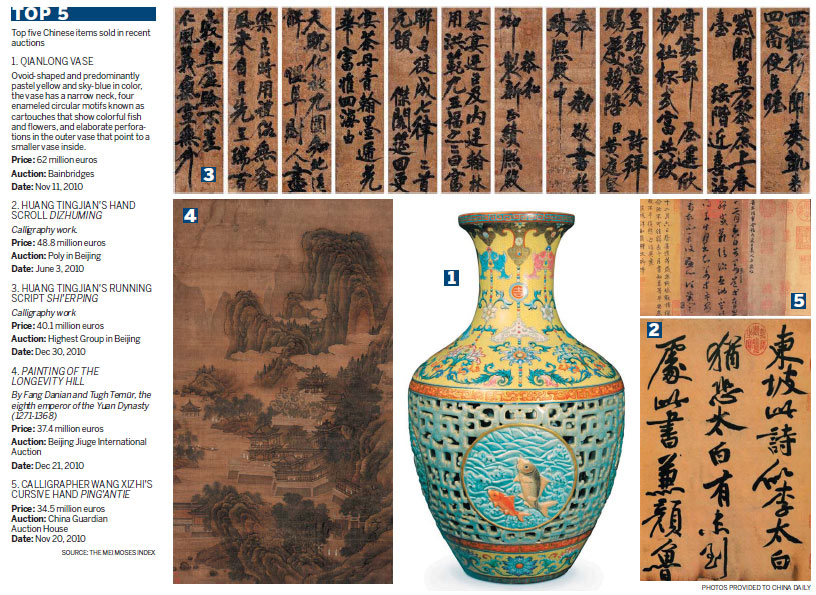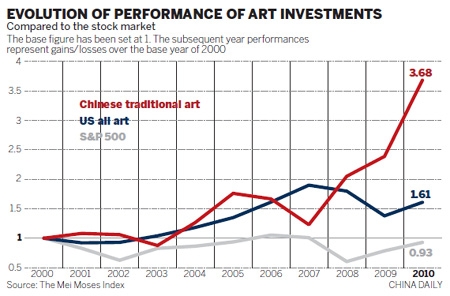Chinese buyers shaking up art auction market
Updated: 2011-02-18 10:46
By Andrew Moody and Fu Yu (China Daily European Weekly)
|
 |
The holy grail for many of the international auction houses is to be able to hold their own auctions on the mainland.
At present, Chinese law prevents them from doing so, although many exhibit works there that are eventually sold in Europe or the United States.
Christie's, which has representative offices in Beijing and Shanghai, has a licensing arrangement with the Beijing auction house Forever which can hold auctions using its brand.
Jonathan Stone, the |Hong Kong-based Asia managing director of Christie's, says he believes China is the right place to invest.
"We are significantly investing in the region and in people on the ground. We are also looking at ways globally to support Chinese participation in the market," he says.
He believes Chinese purchases of high profile works of art has to some extent propped up the art market during the economic crisis.
"I think what is encouraging is that even in the darkest days of the economic crisis, although the sales volume was clearly reduced, there was still a hunger for great works of art and lot prices were going up, even though there was some reduction of the volume in the market."
Professor Mei, the creator of the art index, believes what we could be seeing is a major sea change in balance of power in the art world from Europe and the West to the East.
He believes with Chinese ceramics and other heritage items becoming a new driver in the market, China could usurp both London and New York as leading auction centers.
 |
"It is already the third biggest without the international buyers these other centers attract. I think Beijing could overtake New York as the world's No 1 auction market within 10 years and probably within five," he says.
Professor Yu at the China Central Academy of Fine Arts is concerned whether the Chinese new rich, unlike their European and Western counterparts, see art merely in financial terms.
"The monetarization of fine arts in China is on an unprecedented scale. I think there is a need for buyers to focus more on the art itself than the high prices it can fetch," he says.
Zhang Lan, the chair of South Beauty, however, insists it is not the machismo of high prices that fuels her interest but her love of art itself.
"Once I think one artist has got the potential, I will buy his or her work but never sell it. I will grow with this artist and the artwork will influence my life and the way I do business," she says.
E-paper

Pearl paradise
Dreams of a 'crazy' man turned out to be a real pearler for city
Literary beacon
Venice of china
Up to the mark
Specials

Power of profit
Western companies can learn from management practices of firms in emerging economies

Foreign-friendly skies
About a year ago, 48-year-old Roy Weinberg gave up his job with US Airways, moved to Shanghai and became a captain for China's Spring Airlines.

Plows, tough guys and real men
在这个时代,怎样才"够男人"? On the character "Man"
